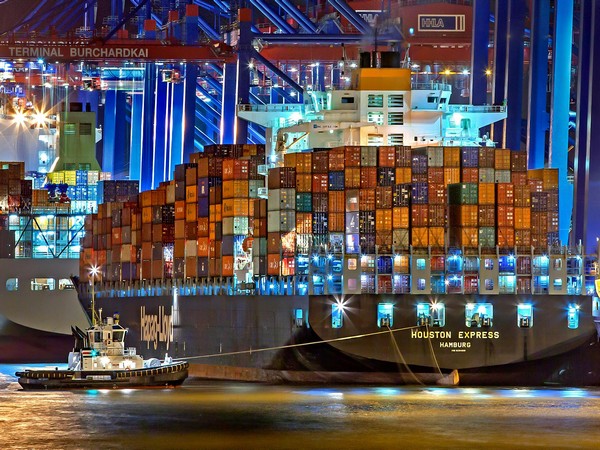
Difficult to predict the future of the US-China trade war
Jul 05, 2025
New York [US], July 5: Washington and Beijing continue to lift sanctions against each other, but the future of the US-China trade war remains unpredictable, posing many risks to the regional economy.
Yesterday (July 4), regarding the US-China trade war, CNN reported that Washington has just made another move to ease trade tensions with Beijing.
Both of them went down the ladder.
Specifically, the administration of US President Donald Trump has lifted restrictions on the export of chip design software to China. The world's three leading chip design software companies, Synopsys, Cadence and Siemens, all said they had been notified by the US Department of Commerce that the export restrictions imposed in May had been lifted.
In late May, the US imposed restrictions on the supply of key software tools used to design semiconductors to China, as part of retaliation for Beijing's clampdown on rare earth exports to Washington. The move sparked a bitter row between the two countries, despite a trade truce in early May.
Washington's export controls on chip design software, or electronic design automation (EDA), have a major impact on China's semiconductor industry because they are essential for creating new microchips. According to a report published by Xinhua, the trio of Synopsys, Cadence and Siemens control 70 percent of China's EDA market.
Therefore, the US lifting of the restriction is of great significance to China. Not only that, the US government recently sent letters to major ethane producers and exporters to revoke the regulation requiring ethane export licenses, which was issued in June. This move clears the way for ethane shipments to China. It is estimated that 98% of China's ethane supply depends on the US, while this is an important petrochemical feedstock.
In response, China has allowed rare earth magnet exports to the US to resume, US Treasury Secretary Scott Bessent confirmed, although exports have not yet returned to pre-April levels, when Beijing imposed restrictions on rare earth exports in response to US sanctions.
China's Foreign Ministry recently announced that Beijing and Washington have been in close contact since the latest round of talks and are working to implement the frameworks agreed upon by both sides.
Mixed signals about the US-China trade war
However, The New York Times quoted analysts as saying that Washington is still pressuring many other countries to move supply chains out of China. Typically, US negotiators are asking the Thai government to screen incoming foreign investment, hoping to prevent Chinese companies from shifting production to Thailand. Washington is even pressuring some economies to consider controlling the export of technology such as semiconductors.
"The Trump administration is sending a message that it needs to see other economies strategically decouple from China if they want to become trading partners with the US," the newspaper quoted Steve Okun, CEO of geopolitical consulting firm APAC Advisors.
Washington's efforts to pressure Beijing have put some parties in a difficult position. On May 3, China's Ministry of Commerce announced that it firmly opposes any trade deal between the US and other countries that "comes at the expense of China's interests." Beijing will "take countermeasures to protect its legitimate rights and interests," it said.
Not only that, if the US-China trade tensions continue and the Trump administration's tax policy remains unpredictable, it will have a significant impact on economies in the region.
In a recent analysis sent to Thanh Nien , Standard & Poor's (S&P) Ratings, the world's leading credit rating agency, predicted that Asia-Pacific economies will face considerable external pressure, especially from the uncertain US tariff policy and the weak Chinese import market, one of the reasons being the difficult economy and trade war.
The analysis expects domestic demand to remain strong across economies, partly due to policy easing. This also means that the resilience of regional economies is highly variable, with those that rely more on exports seeing a lower recovery.
Source: Thanh Nien Newspaper






